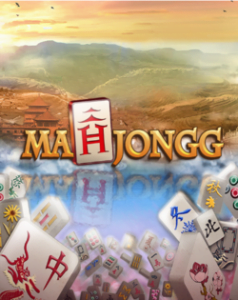
Mahjong
GAME INFO

Navigating Tranquility: The Profound Significance of Playing Mahjong
Amidst the bustling pace of modern life, there exists a cherished refuge where time slows down, and contemplative engagement takes center stage. Mahjong, a centuries-old game originating from China, offers this precious respite. Beyond its reputation as a strategic board game, Mahjong holds a deeper significance that transcends entertainment. In this article, we delve into the profound importance of playing Mahjong and how it fosters mental agility, social connection, and a sense of mindfulness.

Importance of Playing Mahjong
Mahjong is more than just a game; it’s a conduit to moments of tranquility and a way to nurture bonds with others. Here’s why the act of playing Mahjong holds profound importance:
- Mental Agility and Strategy: At its core, Mahjong is a game of skill and strategy. Players must make calculated decisions about which tiles to discard, which to keep, and how to adjust their tactics based on the changing state of the game. Engaging in this intellectual challenge sharpens cognitive skills such as pattern recognition, memory, and decision-making.
- Mindful Concentration: Mahjong demands a unique form of focused attention. Players must be attuned to the constantly evolving arrangement of tiles and their interactions. This state of mindful concentration promotes a break from the distractions of daily life, inviting players to be fully present in the moment.
- Social Interaction and Bonding: Mahjong transcends cultural boundaries and unites individuals in shared gameplay. Gathering around the Mahjong table fosters conversations, laughter, and a sense of camaraderie. The game provides a platform for intergenerational bonding, where elders impart wisdom to the younger generation while playing.
- Cultural Preservation: Mahjong is deeply woven into the cultural fabric of several East Asian societies. Playing Mahjong not only keeps the tradition alive but also connects people with their heritage and history. The intricate tiles, symbols, and gameplay reflect the rich cultural tapestry of the game’s origin.
- Stress Relief and Relaxation: The rhythmic clacking of tiles and the tactile nature of arranging them offer a soothing sensory experience. Mahjong provides a haven of tranquility, allowing players to unwind and temporarily escape the pressures of everyday life.
- Critical Thinking and Adaptability: Mahjong’s complex tile combinations and evolving game state require players to think critically and adapt to changing circumstances. The game teaches valuable life skills such as flexibility, adaptability, and the ability to strategize under uncertainty.
Mahjong is more than just a pastime; it’s a conduit to mindfulness, mental stimulation, and social connection. Whether you’re sitting around a table with friends, family, or even strangers, the act of playing Mahjong creates a harmonious space where time seems to slow down. As tiles are meticulously arranged and strategic decisions are made, players embark on a journey that goes beyond the physical tiles and immerses them in a profound cultural and personal experience. In an ever-accelerating world, Mahjong stands as a serene sanctuary where the importance of play transcends entertainment, offering a gateway to mindful engagement and the simple joys of human connection.

















